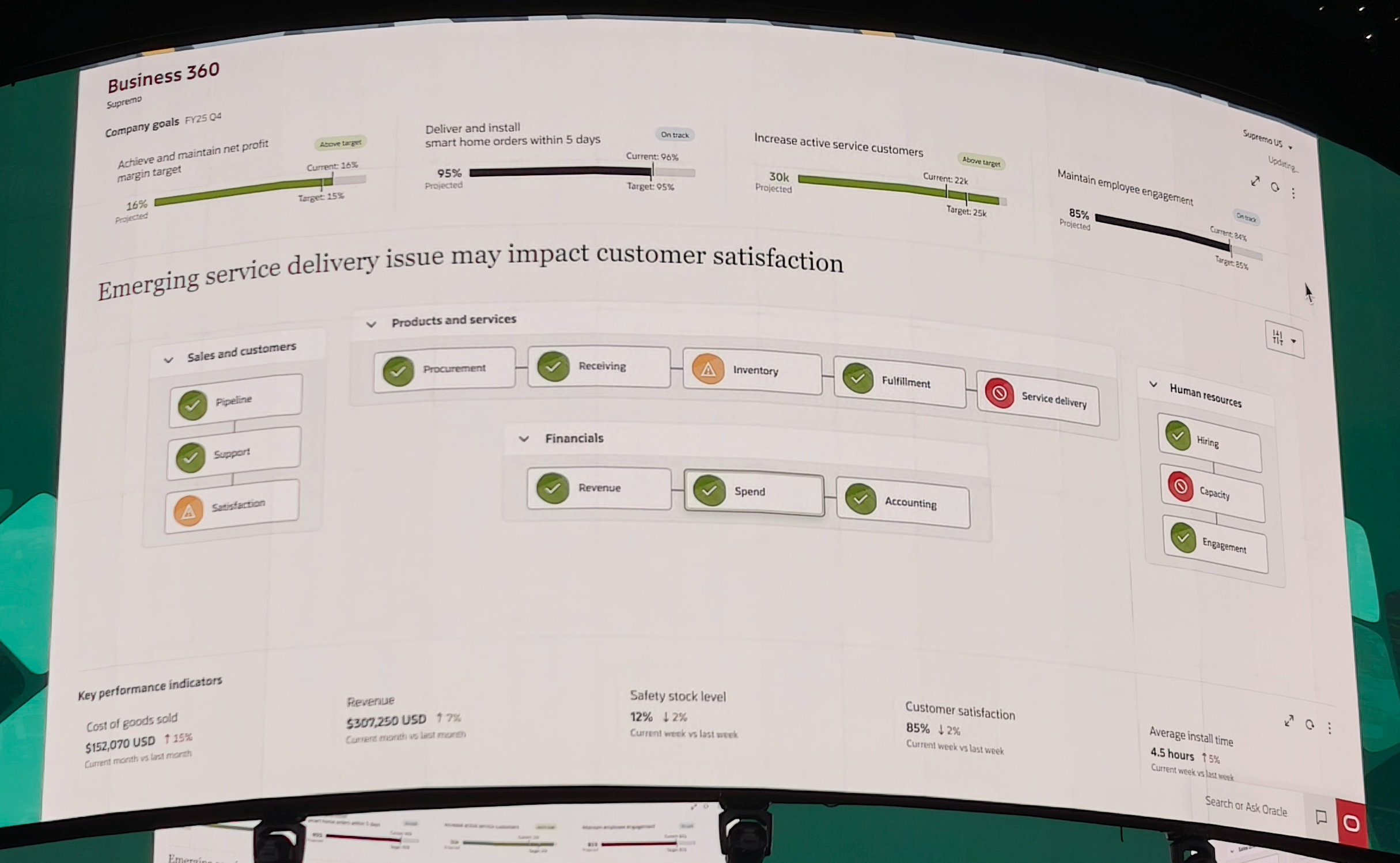I have spent the last few days with Oracle NetSuite learning about their future version of ERP software, referred to as Next. This has given me insight to share with you my takeaways on what the future of AI’s use in business is.
My first takeaway from the event was that although this is ERP or whole of company operational software there is no doubt the focus is on accounting. However, there is so much more, and if everything is done in one software package, then insight can be gained from all facets of the business.
Let me use a real-life example of non AI case on how a business can benefit from ERP software.
Kieser is an Australian company that has grown from 13 to 31 physio health clinics with 800 staff. Every year they continue to grow and were using accounting software and spreadsheets to run their business. At month end on average they took 25 days to determine the results from the previous month. The highly manual process not only resulted in errors and insights long after the previous month it also meant they would need to hire an additional accounts clerk every year for the next 5 years with the organisation’s projected growth.
Fast forward to their integration of NetSuite, and they can now do a business close in 3 days. They have insight and engage in discussions about the business, enabling them to react quickly. They have transitioned from being a choke point in the finance team to trusted advisors who help grow the business.
If we take this example of how a business can benefit, and then introduce what AI is promising, it will bring some exciting insights and productivity.
The barrier to entry has droppe,d with an individual being able to interact in conversation rather than process. So if you ask a questio,n you can get an answer. You can also teach AI. For example, provide your credit policy or marketing brand guide to AI, and it will learn the content to use for process setting or queries. You will need controls and subject matter experts to feed the AI, as you do not want it to be taught by the wrong people.
Speed is one of the great promises with the concept being if I can think it, next week I can do it.
In the Kieser example, we discussed closing the monthly accounts within 3 days to gain a clearer understanding of the company’s true financial position. NetSuite plans an AI feature called Automated close, which will not only reduce this to no wait but allow you to have this data at any time instantly.
Finance has certainly been the main driver for organisations today, but ERP software is designed for the entire company.
Finance no longer needs marketing to help make their presentation look good; simply ask Oracle AI to do it.
AI product forecasting will become a reality, just as with humans, as many variables can be taken into account. Action now becomes not forecasting but rather being told about anomalies and being prompted what needs to change, and do you agree? Manage now by exceptions.
Project managers can analyse whether a project is on track and identify issues. This could be delivery or cost overruns, and what is causing the issue. e.g., seniors doing juniors’ work, resulting in a cost overrun.
Service technicians can describe a problem with a broken machine, and AI will provide suggestions to troubleshoot the issue, helping to get the machine operational faster.
.
Say you need custom actions within NetSuite. Historically, you would need someone to write code. Not any more, now with AI, anyone can ask in their own words what they want, and AI will write the code for you.
Note that NetSuite say this functionality will roll out over the next 12 to 18 months.
Looking beyond this period, Oracle has teased a function called Business 360, where a dashboard provides a comprehensive view of your entire business and identifies anomalies for insight. This encompasses sales, operations, and HR.
Oracle also hinted AI will also change the equation, allowing their business technology solutions to be accessed by smaller businesses where previously was only affordable for larger businesses.
I certainly walk away from my few days as a guest of Oracle with excitement of what is possible for business and how these tools will supercharge maximising internal business processes.
